
Vueron Newsletter
No. 85
2024.01.30
| RoboSense Joins Mcity to Help Drive the Future of Mobility | ||
| Mars partners with Einride to bring 300 digital, electric trucks to Europe’s roads by 2030 | ||
| Pony.ai secures historic permit for self-driving trucks | ||
| Kodiak Opens Truck Port at Ryder Facility in Houston |
1. RoboSense Joins Mcity to Help Drive the Future of Mobility
-
- RoboSense, a leading LiDAR technology innovator, has announced its membership in Mcity, a public-private mobility research center led by the University of Michigan.
- Mcity focuses on developing emerging mobility technologies and exploring their commercial and economic viability.
- RoboSense joins a diverse community at Mcity, including industry members like Toyota, Ford, Honda, Denso, and government partners such as the U.S. Department of Transportation and the Michigan Department of Transportation.
- As a member, RoboSense commits to staying at the forefront of technological advancements in the mobility sector.
- RoboSense will contribute its M Platform sensors and ground truth software for research and development at Mcity.
- The company’s technology will be installed on a Ford Mustang Mach-E to enhance data collection capabilities at the Mcity Test Facility and in the city of Ann Arbor.
- RoboSense will also provide experiential learning opportunities for students through U-M’s Perot Jain TechLab at Mcity, a start-up-in-residence program.
- Mcity’s director, Henry Liu, emphasizes the partnership’s value in staying innovative and adaptive in the transportation field.
- RoboSense’s North American headquarters in Michigan and its proximity to Mcity make the collaboration a natural fit for advancing transportation safety, sustainability, equity, and accessibility.
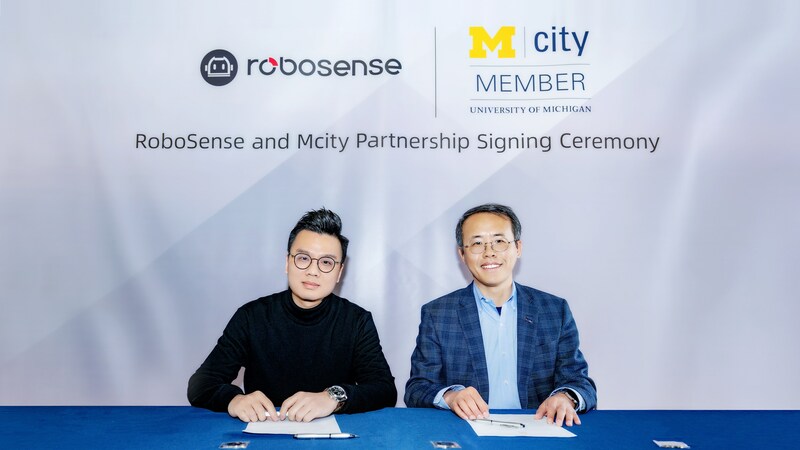
The collaboration enhances Mcity’s data collection capabilities through RoboSense’s vehicle-mounted, LiDAR-based perception system. The involvement of industry leaders like Toyota, Ford, and Honda in Mcity emphasizes its significance as a hub for cutting-edge mobility research.
2. Mars partners with Einride to bring 300 digital, electric trucks to Europe’s roads by 2030
-
- Mars, a global company, and Einride, a freight technology company, are partnering to introduce a fleet of 300 electric and digitally optimized heavy-duty trucks across Europe by 2030.
- The electric operations aim to save 20,000 metric tons of CO2e annually by 2030, contributing to a 10% reduction in Mars Europe’s road transport greenhouse gas emissions each year.
- The first delivery occurred between Mars Petcare factory in Verden, Germany, and its distribution center in Minden, Germany, with two electric trucks and charging points powered by Einride’s operating system Saga.
- The strategic partnership will expand across Europe, starting with routes in the U.K. and the Netherlands in 2024, and an autonomous pilot is expected to be implemented in 2025.
- The initiative aligns with Mars, Incorporated’s commitment to achieving net-zero emissions globally by 2050, with a target to cut carbon in half by 2030 across its full value chain.
- Mars is investing $1 billion globally over the next three years to drive climate action, emphasizing the transformation of transport and energy sources.
- The electric heavy-duty trucks will save up to 193,000 road miles per year on the initial German route, and charging infrastructure is being installed to support the transition to an electric fleet.
- Einride’s digital, electric, and autonomous technologies will be deployed to enable sustainable road freight, including connected electric vehicles, autonomous vehicles, and Einride Smartchargers.
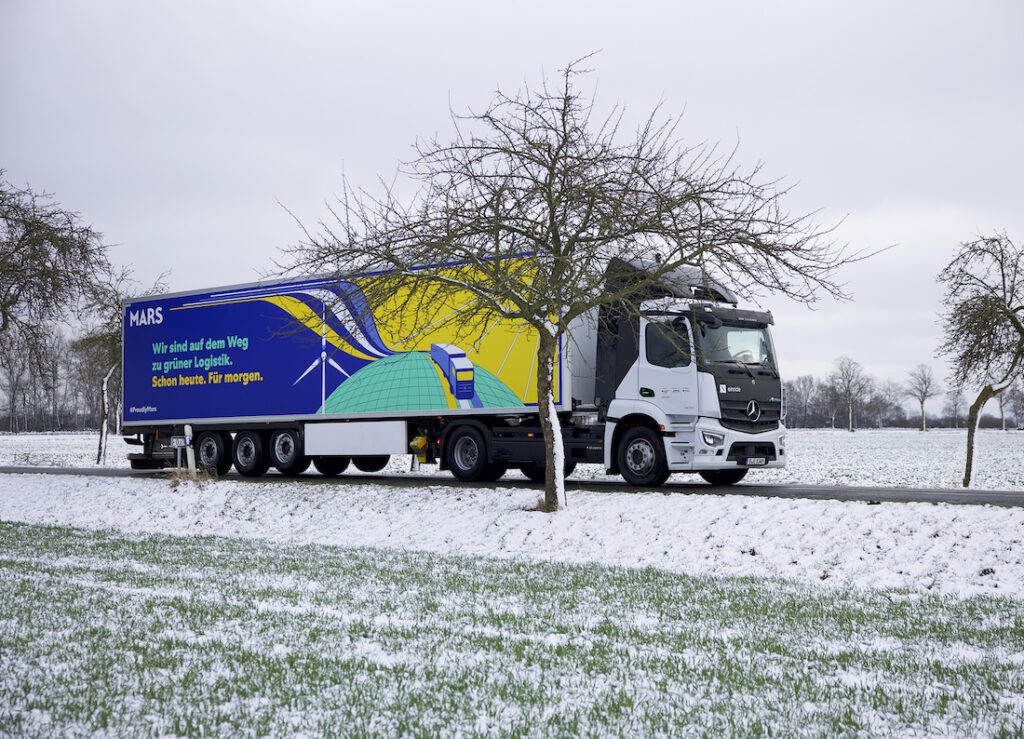
The partnership reflects a commitment to sustainable and environmentally friendly transportation, contributing to Mars’s broader goal of achieving net-zero emissions. Einride’s digital technologies, such as real-time data-driven insights and autonomous capabilities, play a crucial role in optimizing routes, reducing energy consumption, and tracking emission reductions.
3. DOJ and SEC investigate GM-owned self-driving car company Cruise
-
- The Department of Justice (DOJ) and the Securities and Exchange Commission (SEC) are investigating General Motors-owned autonomous car company Cruise following an October incident where one of its cars hit a jaywalking pedestrian and dragged her about 20 feet.
- The California Department of Motor Vehicles suspended Cruise’s permits after the incident, leading to the federal probe.
- Cruise, which halted its driverless testing program nationwide, acknowledges it failed to meet regulatory expectations and fully cooperates with state and federal investigators.
- A report by law firm Quinn Emanuel Urquhart & Sullivan highlights Cruise’s deficient leadership, misrepresentation of events, and inconsistent disclosures surrounding the October crash.
- Cruise expresses profound remorse for the pedestrian’s injuries and the breach of trust with regulators, media, and the public.
- The DOJ and SEC declined to comment on the investigation.
- The incident is part of a tumultuous period for Cruise, including revoking permits for 24/7 robotaxi service in San Francisco after the collision.
- San Francisco has filed a lawsuit against a state commission allowing autonomous car companies like Cruise to expand despite reported issues on city streets.
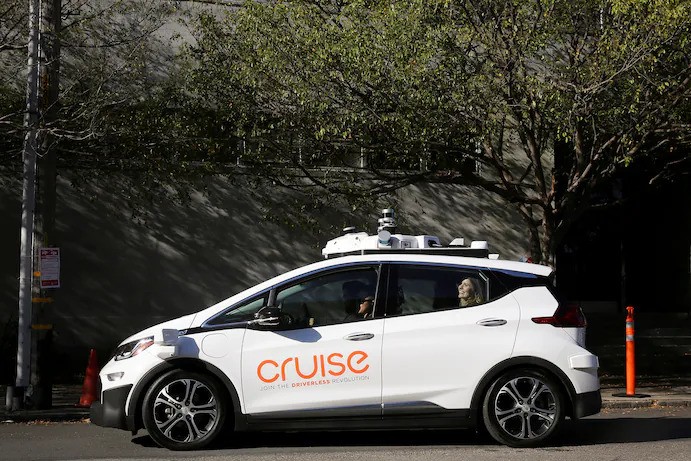
The Quinn Emanuel report’s findings of deficient leadership and misrepresentation underscore the challenges companies face in navigating the complexities of autonomous vehicle technology and regulatory expectations. The outcome of the federal investigation may have broader implications for the autonomous vehicle industry, influencing regulatory frameworks and safety standards.
4. Pony.ai secures historic permit for self-driving trucks
-
- Autonomous driving startup Pony.ai receives a cross-provincial demonstration application permit from three government bodies, including the Tianjin Municipal Transportation Commission.
- The permit is the first granted for self-driving heavy-duty trucks in China.
- Pony.ai partners with logistics company Sinotrans to offer autonomous highway freight services on the Beijing and Tianjin sections of the Beijing-Tianjin-Tanggu expressway.
- Autonomous trucks will undergo testing on this cross-provincial highway at speeds up to 90 kilometers per hour, with a safety operator in the driver’s seat.
- Over 100 kilometers of the expressway are approved for testing, and the trucks will be operated in collaboration with Sinotrans.
- Pony.ai has been exploring autonomous truck logistics and dedicated logistics freight operations in various locations across China.
- The startup has conducted extensive autonomous driving tests in diverse conditions, accumulating nearly 4 million km of autonomous truck testing distance with a total freight weight of almost 20 million ton-kilometers.
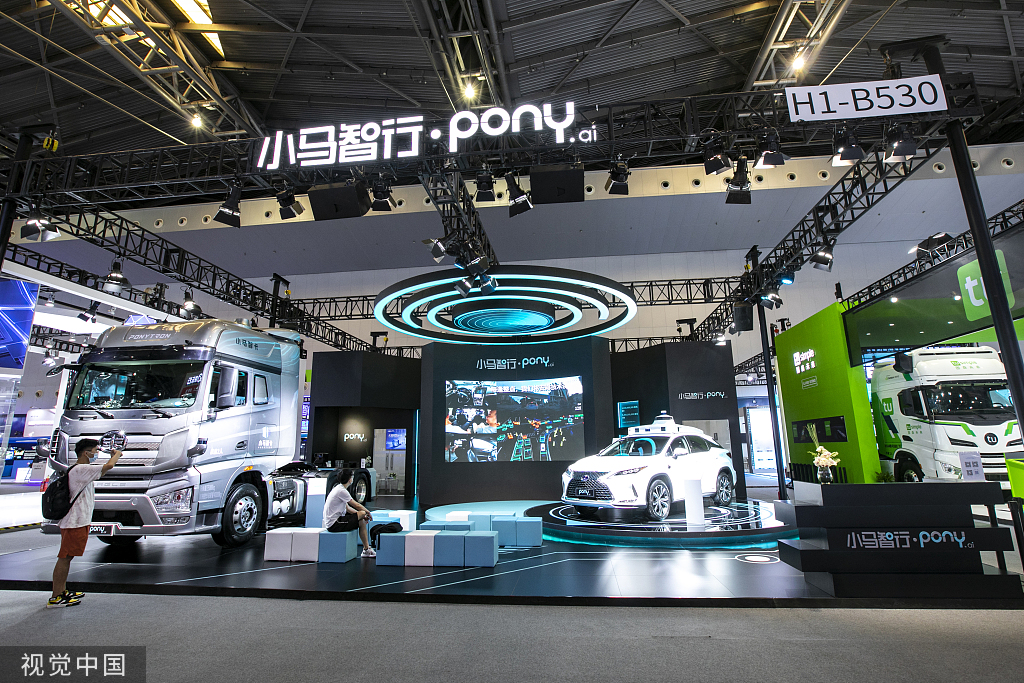
Pony.ai’s acquisition of a cross-provincial demonstration application permit for self-driving heavy-duty trucks signifies advancements in autonomous technology adoption beyond passenger vehicles. The collaboration with Sinotrans to provide autonomous highway freight services highlights the practical application of autonomous trucks in the logistics and transportation industry.
5. Kodiak Opens Truck Port at Ryder Facility in Houston
-
- Kodiak Robotics opens a second truck port for autonomous semis at a Ryder System Inc. fleet maintenance facility in Houston.
- The facility, operational since December, supports the launch, landing, and freight transfer of autonomous trucks on routes between Houston, Dallas, and Oklahoma City.
- Kodiak plans to introduce its first driverless operations on the Dallas-Houston route in 2024, using the Ryder facility as a launch point.
- Ryder aims to build a portfolio of service elements supporting autonomous trucks’ safe deployment and maintenance.
- The Houston facility allows Kodiak to validate the Houston-Dallas route and achieve its 2024 goals.
- Kodiak’s primary focus in 2024 is on the Dallas-Houston and Dallas-Atlanta routes, with plans for gradual expansion across the southeastern United States in 2025.
- Kodiak previously opened a truck port near Atlanta in partnership with Pilot Co., set to serve as the eastern hub for its network.
- The company has partnerships with carriers including Loadsmith, C.R. England, Tyson Foods, Ikea, Werner Enterprises, and Forward Air.
- Kodiak plans to equip 800 trucks run by Loadsmith with self-driving technology, aiming for delivery in the latter half of 2025.
- The recently debuted “driverless ready” sixth-generation self-driving truck includes top-mounted hazard lights and microphones to detect emergency vehicles.
- The sixth-generation trucks are expected to go driverless in the next two quarters of 2024 after validation of software and artificial intelligence systems.
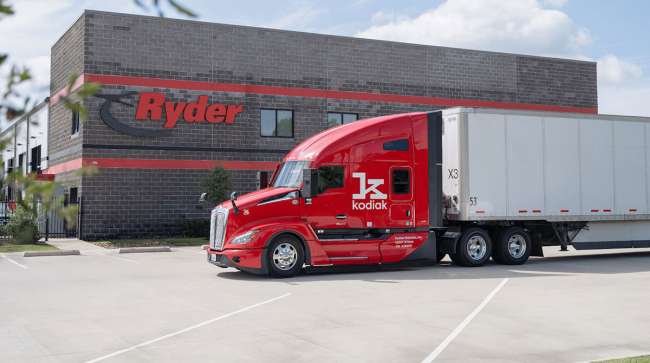
The expansion of Kodiak’s autonomous truck operations to Houston, in collaboration with Ryder, signifies progress in deploying and testing self-driving trucks in diverse regions. Ryder’s vision of building a portfolio of service elements for autonomous trucks emphasizes the growing importance of comprehensive support infrastructure for the industry.
*Contents above are the opinion of ChatGPT, not an individual nor company

